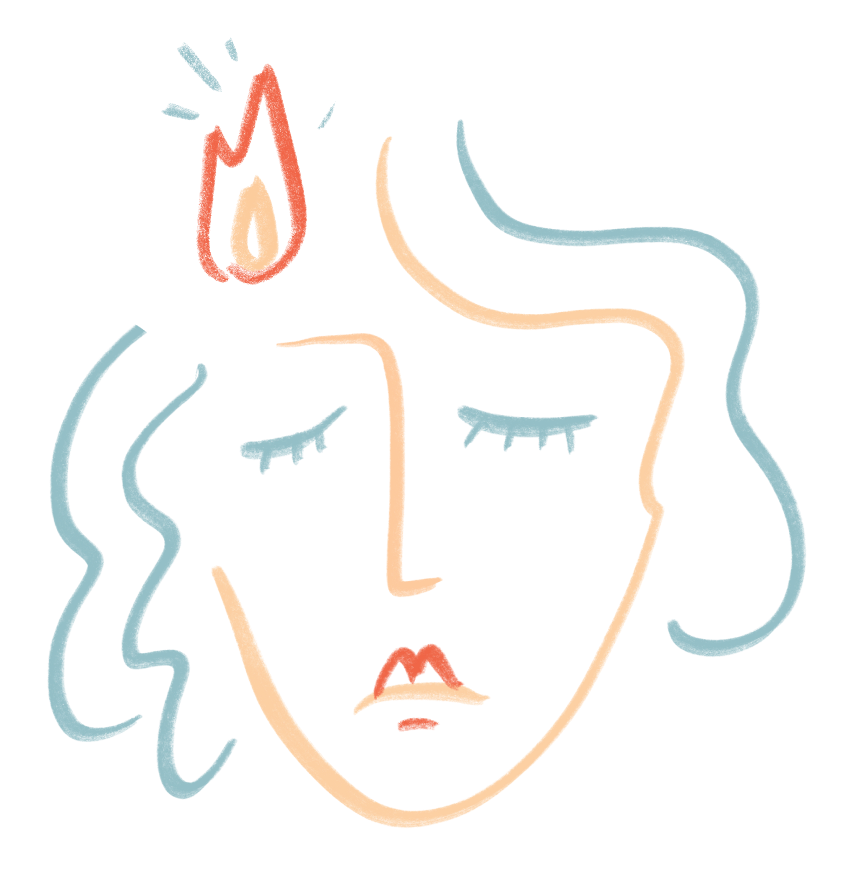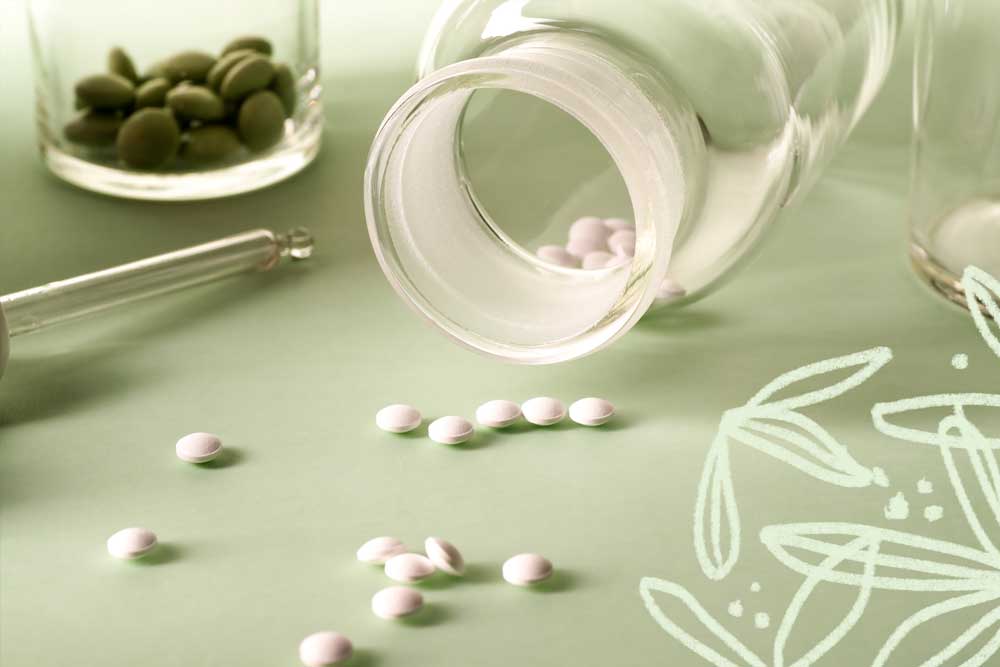HOT flashes DEFINITION
It’s when you have a sudden creeping or sweeping heat across the upper body that lasts a few minutes. Hot flashes can be uncomfortable and embarrassing. They have a habit of appearing at the most inconvenient times!
Discover your personalized treatment options

HOW LIKELY ARE HOT flashes DURING MENOPAUSE?
- These symptoms are experienced by three out of four people during menopause
- Menopause generally begins at 50-55. Hot flashes may start a few years before periods stop and stop a few years after menopause ends
- Research has revealed that, on average, you can experience hot flashes for an average of 10 years
- What you eat, drink, and if you smoke – can make you more susceptible to hot flashes
Read more about the stages of menopause.
Night sweats
Night sweats are hot flashes that happen during the night and can be uncomfortable and upsetting as well as disrupting your sleep, leaving you exhausted the next day.
You may suddenly wake up drenched on your neck, chest, head, and elsewhere on your body. You may even soak through and need to change your bedding. Read more about night sweats in our symptoms library.
Treatment for hot flashes in menopause
When you have a hot flash, blood vessels near your skin’s surface dilate to release heat. It makes your skin flush red and your body sweat to try and cool down. Avoiding triggers that can cause your blood vessels to dilate can help with hot flashes.
2. Watch your diet. Avoid spicy foods, such as chilies, paprika, and cayenne pepper. Reduce caffeine, by reducing coffee, black tea, green tea, and energy drinks.
3. Follow a diet low in saturated fat and salt, and high in Vitamin D and calcium. Eating foods rich in phytoestrogens – such as soy products and certain grains, beans, fruits, and vegetables – that mimic estrogen, might help.
4. Quit smoking. Smokers have more hot flashes than non-smokers.
5. Keep cool: Helpful tips include wearing lightweight layers you can remove quickly – you can also buy menopause-friendly nightwear engineered to wick away sweat. Use sheets and blankets for bedding instead of a duvet, so you can adapt to your temperature easily. Invest in a cooling face spray and fan for when the hot flashes hit.
6. Watch your stress. Practice mindfulness, and have plenty of breaks and time for yourself.
Can hormone therapy (HT) help?
Yes. HT is known to improve sleep, mood and hot flushes during menopause. HRT comes with risks and is not suitable for everyone. Read more about HT risks and benefits.
It might be that your healthcare provider recommends another medicine, such as certain antidepressants that can help with hot flashes. Speak to your healthcare provider about your personal treatment options.
Hot flashes and menopause FAQs
I can now keep calm if I feel heat coming on and remind myself that the moment will pass”





